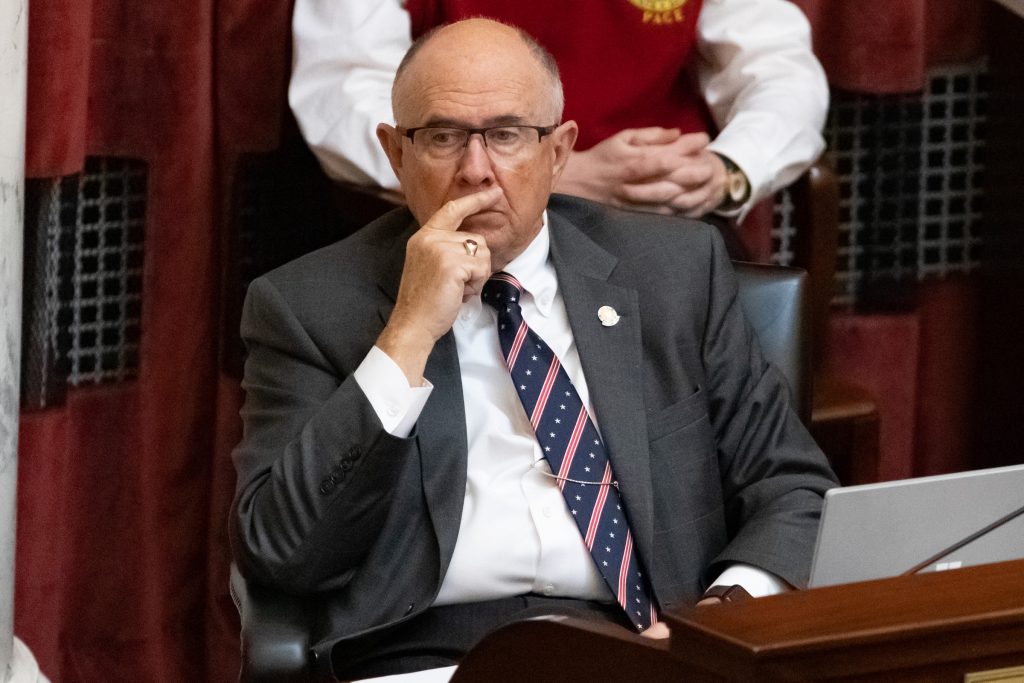 I was cutting dadoes down in my shop when I felt the vibration in my breast pocket. Unidentified number so I went back to the table saw. When I got another shot of the cooling morning coffee I looked again and there was a voice mail. Before deleting, I looked at the Apple transcription.
I was cutting dadoes down in my shop when I felt the vibration in my breast pocket. Unidentified number so I went back to the table saw. When I got another shot of the cooling morning coffee I looked again and there was a voice mail. Before deleting, I looked at the Apple transcription.
“…consultant to the President…wish to speak…could you call us back...time sensitive.”
Geez.
So, I listened to it before deleting it. This could be a real scam. I figured they wanted my Social Security number for sure. But no, despite the mumbling, I detected they knew me, and just wanted to talk. So, I called them back.
“Senator Schmidt?” they answered quickly.
“Just who are you?”
“I work for the President’s campaign team, and we wanted to visit with you about his healthcare plan.”
“You’ve got to be kidding.”
“No, we really need some ideas, and we’ve used AI to find the folks with the best ideas and the algorithm came up with you. And there were some others. But I need your thoughts.”
I finished the dregs of the cool coffee. “What’s the big rush?”
“Well, you see, he made this big announcement that he was planning to replace the Affordable Care Act with something new and different, so we are reaching out. AI says you have not been fully supportive of the ACA in your writings. It strongly recommended your input.”
“Geez, Biden wants to replace the ACA? I hadn’t heard that.”
There was a long pause. “Oh no, not Biden. I am referring to The President. We all here refer to him as the Real President on the team.”
I laughed out loud. “So, Trump made this big promise with no ideas?”
“It wasn’t in the script. The President does that. He senses things and goes off script. We were all very unprepared. But we have very strong algorithms.”
“So, you call me. Heck, I’m cutting dadoes.”
“Senator…”
I cut in “State Senator.”
“Be that as it may, we are looking for your best ideas.”
I brushed the dust off the table saw top. “You don’t need me for this. Just read the data, the polls. The United States spends more on health care than any other country in the world and we have the worst outcomes of any developed country. The younger voters strongly favor universal coverage. It’s just the old geezers like me with Medicare that oppose it, since we’ve already got it. If he wants the youth vote tell old carrot face to go full Bernie.”
There was a long pause, and I heard some noise.
“I could go on. Every state that expanded Medicaid, a small step toward universal coverage saw an economic bump. Here in Idaho, it was real and dramatic. Think what that would do to the Dow Jones if a President with some spine was able to push that through those old Republican fully insured Senators.”
I heard a voice I recognized say in the background, “Can’t we get somebody else? I like his spunk, but I can’t go full Bernie.”
“Hey,” I yelled. “Am I on speaker phone!”
“Um, yes, Senator, you are. The President has been listening in with his advisors.”
“Maybe you ought to say that up front, you know?”
“I apologize.”
I paused and they did too. But I jumped at the space.
“Mister President. I know Bernie isn’t your idea of a strong man. But health care coverage for everybody in this country is what’s holding us back in the world economy. We’re smarter and more hard working than the Germans but we spend twice as much as them on healthcare. Have some cojones. Admit we need to make this leap. Biden took the baby step on infrastructure and global warming. Show you have the manhood to address true healthcare reform.”
The line went dead. I went back to cutting dadoes.



 One thing I learned from my five years at the Post Register in the 1980s was the love that people in Idaho Falls had for Republicans. Almost as much as the 4th of July.
One thing I learned from my five years at the Post Register in the 1980s was the love that people in Idaho Falls had for Republicans. Almost as much as the 4th of July.


 It was a bit surprising to read
It was a bit surprising to read 
 In November 2020,
In November 2020, 
 In Idaho politics the word “freedom” continues to be batted around a lot by people who seldom bother to explain what they mean by it.
In Idaho politics the word “freedom” continues to be batted around a lot by people who seldom bother to explain what they mean by it.

